- Home
- Rick Mofina
They Disappeared Page 3
They Disappeared Read online
Page 3
Duggan, a third-generation uniform with twenty-three years on the street, was telling young Jimmy, his rookie partner of four months, about a deli on Forty-seventh when a white guy in his thirties rushed up to them.
“I need help!”
Instinctively Hodge and Duggan braced while giving him the instant head-to-toe. Worried demeanor, sweaty. Six foot, medium build, muscular, clean-cut, brown hair, jeans, golf shirt with Laurel Montana Volunteer Fire Department insignia. Nothing in his hands but a cell phone.
“What’s the problem?” Hodge asked.
“My wife and son have been abducted.”
Hodge traded a quick glance with Duggan.
“Your wife and your son?” Hodge reached for his notebook.
“It happened a few minutes ago!”
“Take it easy, let’s start with some ID and names,” Hodge said.
The man identified himself as Jeff Griffin and Hodge started notes for a report.
“Okay, Jeff, tell us what happened and where,” Hodge asked.
The man walked them to the location, recounting the few details he had. Hodge took notes, asked short questions. Duggan said nothing. As their radios crackled with cross talk Duggan studied Jeff, listening, absorbing and watching through jaded brown eyes that seldom missed a thing. Nearly finished, Jeff turned to the wheelchair man, panhandling some fifteen yards up the street.
“…and that guy there in the wheelchair said he saw two men ‘help’ them into a van or an SUV before it drove away.”
“You got this from Freddie?” Duggan said.
“Is that his name, the soldier who lost his leg in Afghanistan? He said ‘it didn’t look right’ when he saw them being taken away.”
“Freddie sees a lot of things,” Duggan said.
Jeff nodded, clearly reassured he had a witness that police knew. But then Duggan elaborated.
“Sometimes Freddie sees things that aren’t there, depending on whether he’s on or off his meds. He didn’t lose his leg overseas—he slipped at a subway station platform. Train crushed it. Did you give him money?”
“Ten bucks.”
“He always tries to help people who give him money. He’s not a bad person,” Duggan said.
“What’re you saying?” In the tense silence, Jeff looked hard at Duggan, then Hodge, sensing doubt. His face showed an oncoming rush of helplessness. “What? You don’t believe me? Christ, what am I supposed to do here?”
“Maybe it’s like you said,” Hodge offered. “Maybe they went into a store and Freddie got mixed up. Maybe you should wait a bit?”
Suddenly remembering his one piece of evidence, Jeff reached into his pocket, then held up Cole’s key ring.
“I found this in the street, right where they were! We got this for Cole yesterday. He’d clipped it to his pants this morning! You’ve got to help me!”
Duggan’s face tightened as he blinked at Cole’s key ring. His instinct, forged from two decades of police work, was now telling him that the situation had changed.
“All right, here’s what we’re going to do,” Duggan said. “I’ll talk to Freddie. Jeff, give Officer Hodge any recent photos you have. We’ll start a canvass with other uniforms and I’ll call a car for you, Jeff.”
“Why?”
“This needs to go to the detective squad at Manhattan South.”
Duggan talked into his walkie-talkie as he started toward Freddie. Jeff cued up the photos on his camera and sent them to Hodge’s BlackBerry. He took more notes from Jeff, added more details.
Then Hodge hit Send.
“I’ve just shot the information and pictures to every cop patrolling this area,” Hodge said.
Duggan returned from taking Freddie’s information and was on his radio again searching the traffic.
“Jimmy, email your notes for the sixty-one to Sergeant McBain. I’ll call him. Jeff—” Duggan nodded to the street “—your ride’s here.”
A siren yelped and a marked NYPD radio car, lights flashing, pulled over. Duggan leaned into the empty passenger section, had a quick conversation with the officer behind the wheel. Duggan then opened the rear door for Jeff, who saw Hodge huddling with four other uniformed officers who’d arrived.
“Jeff, this is Officer Breedo. He’s going to drive you to the station house,” Duggan said. “He’ll take you in to Sergeant McBain, who’ll refer you to the detective squad. They’ll take over. Here’s my card with my cell and email—we have your information.”
“Thank you.”
“We’re going to circulate and look for Sarah and Cole here while you work with the detectives. The squad at the Fourteenth Precinct has more resources than we do. They’ll decide what steps to take next.”
“Okay. Thanks.”
* * *
Jeff got in the back.
The seat—vinyl patched with duct tape—was separated from the front by a plastic divider. There was little legroom. The back windows were up tight and would not open. The rear smelled of lemon-scented cleaner, barely masking the trace of vomit and despair. When Breedo slid the divider open, Jeff welcomed the relief as breezes from the open front windows carried Breedo’s cologne to the back of the car.
“It’s about ten blocks away. I’ll have you there in no time.”
The siren yelped again, then wailed nonstop as Breedo maneuvered the Crown Victoria through traffic. Jeff was no stranger to emergency vehicles. He took in the controls for the overhead lights, siren, public address, search lights, the small computer terminal. Breedo’s police radio issued a never-ending stream of coded transmissions.
Traffic ahead parted for them.
“See?” Breedo tapped his computer’s monitor. Jeff saw Sarah and Cole’s picture. “We’re getting information out there.”
Jeff’s gut writhed with relief and fear.
Then he noticed the visor above Breedo, where the faces of a woman and two girls around three or four years old smiled down from a color snapshot.
“That your family in the picture above you?”
“Those are my girls. Duggan says you’re a firefighter in Montana.”
“Volunteer. I’m a mechanic.”
“My brother was a firefighter. We lost him in the Towers.”
“Sorry to hear that.”
The siren wailed.
Jeff tried Sarah’s cell phone once more.
Again, it was futile. “Hi, this is Sarah. Please leave a message.” Keeping the phone pressed to his ear, he clung to her voice for a moment before another stab of concern hit him and he let go.
Breedo caught it and met him in the rearview mirror.
“Don’t worry, Jeff, we’re going to find your wife and son. Don’t worry.”
“Yeah, thanks.”
He saw Breedo’s profile as he drove. Then Jeff saw himself alone in the rearview mirror, stress lines carved in his face, worry bordering on fear clouding his eyes.
If this is a nightmare, then why can’t I wake up? Wake up!
Jeff got out Cole’s key ring, then the camera, and looked at the last picture taken of the three of them together.
He turned back to the window.
Manhattan blurred by and the siren rose to a near-scream.
CHAPTER 7
New York City
The Fourteenth Precinct was situated on Thirty-fifth Street between Eighth and Ninth Avenues in a three-story cream-and-coffee-colored building.
Breedo escorted Jeff to Sergeant McBain, a burly man on the north side of fifty. He was studying his computer at his desk and paused to gaze at them over his bifocals when Breedo introduced him.
“Sarge, this is Jeff Griffin, Duggan and Hodge’s sixty-one.”
McBain threw his attention to Jeff.
“Did the officers find my wife and son?” Jeff asked. “Did they call in?”
“No, I’m afraid nothing’s come in yet.” McBain removed his glasses to get a better read on Jeff. “I’ve spoken to the patrol officers and looked at their notes. From what I understand, Mr. Griffin, your wife and son left with two men in a vehicle, in an alleged abduction?”
“Nothing’s alleged, they were taken—what’s going on?”
“Nothing’s going on, Mr. Griffin. We’re opening an investigation. We’ll do all we can to help you locate your wife and son.” McBain replaced his glasses and made a few strokes on his computer keyboard. “All right, Detectives Cordelli and Ortiz will talk to you. Officer Breedo will take you up to the squad.”
As they headed upstairs, Jeff told Breedo that he could not understand why everyone was skeptical when he needed their help.
“A lot of people mislead us,” Breedo said. “Or change their story.”
Arriving on the floor, Breedo led him down a hall to the fluorescent-lit squad room and a maze of government-issue metal desks. The walls were lined with file cabinets and clipboards holding crime reports, crime stats, corkboards with maps, wanted posters, shift schedules. One schedule had huge block letters: UN DETAIL SHIFT. A large flat-screen TV, mounted to the ceiling, was tuned to an all-news channel reporting on the UN meeting.
The area was abandoned except for one guy in plain clothes hunched at his desk, talking loud on the phone. The day shift was out. Jeff’s mind raced. Minutes ago he was walking down the street with his family. Now here he was, walking through a police squad room. Breedo stopped at two conjoined desks, then rolled over a cushioned swivel chair.
“Have a seat. I’ll find Cordelli and Ortiz.”
Jeff surveyed the desks. Their sides were pushed against a wall, under a well-used board displaying memos, calendars and personal items.
To the left: a framed degree from Long Island University for Juanita Ortiz, a newsletter photo of a beaming female cop in formal blues receiving her shield under the headline Detective Second Grade. There was a snapshot of a man and woman with a little girl, about five, by a mountain lake. The girl had an orange butterfly on her finger.
On the right side of the board: a framed degree in Criminal Justice for Victor Cordelli from Saint Joseph’s College, a framed autographed photo of a man with two members of the New York Yankees on either side. There was some kind of award for Detective Cordelli—First Grade for “Exceptional Duty” in the NYPD Intelligence Division. No photos of a wife or kids. There was a card with an array of vulgar handwritten notes: “Hey, Cordelli, condolences on twenty freakin’ years with the NYPD.”
Each desk had a computer monitor and keyboard. Here, Jeff saw file folders fanned over desks, and notebooks bound with elastic and neatly stacked. On one of the desks was a splayed copy of the New York Daily News with the same headline he’d seen in the boxes a short time ago while walking with Sarah and Cole from the hotel to where—Oh, Jesus!
He ran his hand over his face.
They just disappeared! They can’t be gone! Who would do this? Why? Why aren’t police rushing to search for them?
“Mr. Griffin?”
He turned to a woman in her mid-thirties, tawny hair pulled into a ponytail. She wore a dark blazer, matching pants, white shirt, looked sharp.
“Juanita Ortiz, and this is Vic Cordelli.”
Both detectives carried brimming coffee mugs but managed firm grips when they shook his hand. He declined their offer of a drink. They sat down. Juanita turned to a fresh page in a new notebook.
“I’m sorry, we just cleared another case last night,” Ortiz said. “And we know you told the patrol officers everything but we need you to tell us what happened.”
As Jeff recounted the morning, Cordelli leaned back in his chair. He was wearing jeans, a polo shirt, his ID and a shoulder holster holding a gun. He had a goatee, was about Jeff’s height, but was wiry and revving in a higher gear. Sipping from his mug like he really needed it, Cordelli eyed him over the rim.
After Jeff finished relating events, Cordelli asked to see Cole’s key ring.
“And you found this in the street where you last saw them?”
“Yes.”
Cordelli turned it over in his hand a few times before returning it. Then he asked to see all the pictures in Sarah’s camera and immediately downloaded them to his computer. From his vantage Jeff could partially see the photos as Cordelli scrutinized them one by one and Ortiz continued the interview.
“Jeff, will you volunteer all information about credit, bank and cell phones you and Sarah use?” she asked.
“Of course.” He pulled out his wallet.
“If this is a robbery,” she said while recording account numbers, “we’ll track charges, withdrawals, maybe get photos from an ATM, that sort of thing. It helps.”
“Is that what you think happened?”
“It’s one theory,” Ortiz said.
“If the men wanted to rob them, wouldn’t they’ve let them go by now? God, they could be doing anything to them.”
“Take it easy. At this point,” Cordelli said, “we’re not sure what it is.”
Jeff’s breathing quickened.
Was there something he was overlooking, or forgetting?
One by one images from the morning flowed across Cordelli’s monitor—the street, Cole, Sarah—haunting Jeff as he turned back to Ortiz, who went over her notes. She asked a spectrum of questions, probing a little deeper about Sarah, her job, her disposition, family medical conditions and family history. Jeff told her everything but withheld mention of Lee Ann and its toll. It was too painful, entangled with his own guilt, and irrelevant as far as he was concerned.
“What about my wife’s cell phone?” Jeff asked. “I read somewhere that you guys can track cell phones, that there’s technology to pinpoint where people are through their cell phone.”
“Sometimes,” Cordelli said. “May I see your phone?”
Cordelli turned it on, expertly buttoned and scrolled through its menu and functions. “Is your wife’s phone similar?”
“It’s the same.”
“These are older models. The tracking ability you’re talking about is limited on this type.” Cordelli returned Jeff’s phone and went back to studying the photos, adding, “And as for tracking roaming signals, the phone has to be turned on. Even then, we need warrants to get the phone companies to release that information—but we can expedite them.”
“Is there anything else you can do with the phone?”
“We can get a warrant to essentially clone your phone.”
“What does that mean?”
“Any calls, texts, downloads—received or sent—will also come to us, to a special line with the NYPD, without the caller or sender being aware. It’s like a tap. It allows us to be on top of any communication that might come from the bad guys. Say, a ransom call, or if your wife or son got to a phone and called for help. And we’ll work with FBI for warrants on your hotel or home and work phones in Montana, all numbers associated directly with you or your wife, in case any calls go there.”
“I want you to do everything that helps, yes.”
“We want to be prepared,” Cordelli said. “But the bad guys are smart. They toss the victims’ phones. And they use prepaid disposables that are virtually impossible to track.”
Hans Beck.
“Wait. There was a mix-up with Cole’s bag at LaGuardia. I got a call from this guy, Hans Beck. We had his backpack, he had ours and we met near Penn Station late yesterday and traded them.”
“Anything you can remember about him?”
Jeff described Beck and explained how he’d obtained Jeff’s cell phone number. Ortiz made notes.
“He was kind of weird, nervous,” Jeff said. “His number’s on
my phone.”
Cordelli displayed the call list.
Jeff pointed to it.
“Did he threaten you, ask for money?” Cordelli asked.
“No.”
“How was he weird?”
“I don’t know—he seemed preoccupied, like something was on his mind. Maybe it was because he was rushed. He said he had to catch a train.”
“Did you see what was in his bag, drugs, anything unusual?”
Jeff shook his head and Cordelli and Ortiz exchanged glances.
“He could’ve targeted your family for a robbery or ransom,” Cordelli said. “Or it could be nothing. We’ll check out the number but it could be a dead end.”
“Well, what about all these police security cameras everywhere? Can’t you use them to find my wife and son?”
“Yes, we can,” Cordelli said.
“Then do it, goddammit! My family’s life is at stake!”
The detectives let a few tense moments pass in silence as Jeff blinked back his fear, frustration and guilt. He shook his head.
“Jeff,” Cordelli started, “you’re upset, we understand. But we have people looking. We are investigating as we speak. But we need to be confident that you’ve given us all the information we need.”
“I’ve told you everything I know.”
Cordelli went back to examining the photos.
“Jeff, is Sarah under a doctor’s care? Does she take any medication?”
“No.”
“Does she use illegal drugs? Maybe gamble?”
“What?”
“We have to ask.”
“No.”
“Does she or Cole spend a lot of time online, chatting with strangers?”
“No.”
“What was your wife’s state of mind just before this happened? How would you characterize her demeanor?”
“What do you mean?”
“I’m looking at these pictures of you, of her, and I’ve got to tell you, your smiles look a little forced. I’m getting the feeling that there’s some underlying stress in your family.”
Jeff said nothing.
“Tell us about your family, your marriage. Is it all good out there in Big Sky Country?”

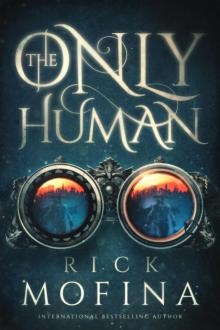 The Only Human
The Only Human Tom Reed Thriller Series
Tom Reed Thriller Series![[Tom Reed and Walt Sydowski 04.0] No Way Back Read online](http://i1.bookreadfree.com/05/tom_reed_and_walt_sydowski_04_0_no_way_back_preview.jpg) [Tom Reed and Walt Sydowski 04.0] No Way Back
[Tom Reed and Walt Sydowski 04.0] No Way Back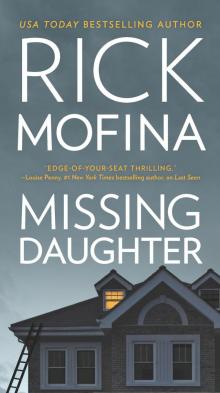 Missing Daughter
Missing Daughter Their Last Secret
Their Last Secret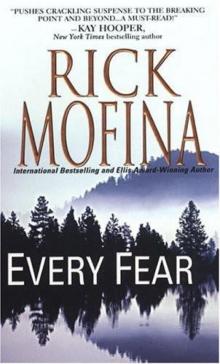 Jason Wade - 02 - Every Fear
Jason Wade - 02 - Every Fear In Desperation
In Desperation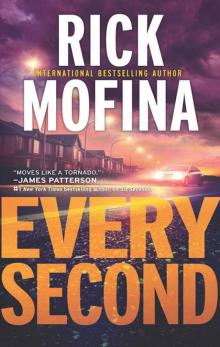 Every Second
Every Second Full Tilt
Full Tilt Search for Her
Search for Her The Last Pursuit
The Last Pursuit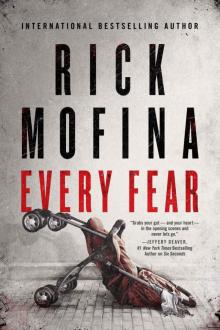 Every Fear
Every Fear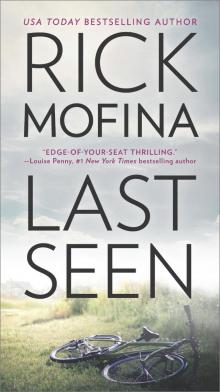 Last Seen
Last Seen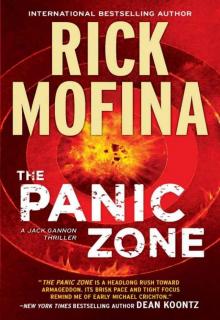 The Panic Zone
The Panic Zone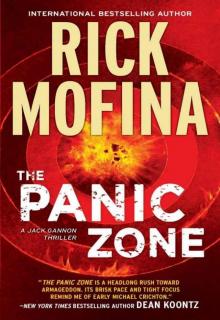 The Panic Zone jg-2
The Panic Zone jg-2 Free Fall
Free Fall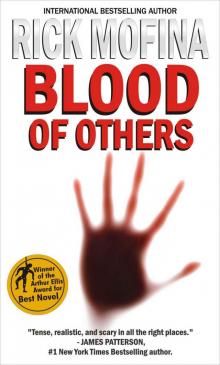 Blood of Others
Blood of Others![[Jason Wade 02.0] Every Fear Read online](http://i1.bookreadfree.com/i1/03/31/jason_wade_02_0_every_fear_preview.jpg) [Jason Wade 02.0] Every Fear
[Jason Wade 02.0] Every Fear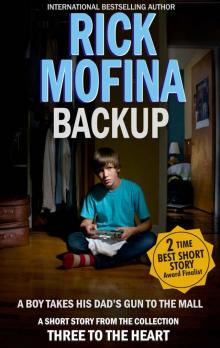 Backup
Backup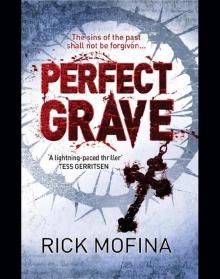 Perfect Grave
Perfect Grave Into the Dark
Into the Dark Whirlwind
Whirlwind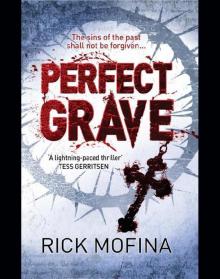 Perfect Grave jw-3
Perfect Grave jw-3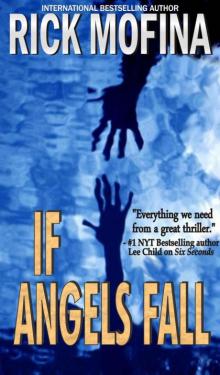 If Angels Fall (tom reed and walt sydowski)
If Angels Fall (tom reed and walt sydowski) Six Seconds
Six Seconds If Angels Fall
If Angels Fall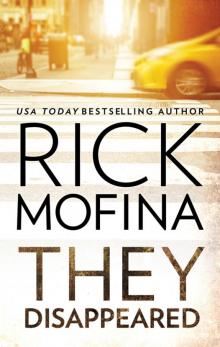 They Disappeared
They Disappeared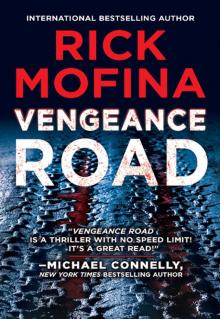 Vengeance Road
Vengeance Road Before Sunrise
Before Sunrise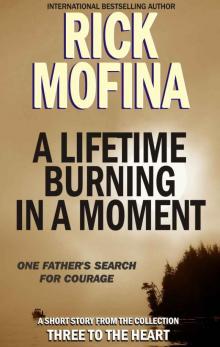 A Lifetime Burning in a Moment
A Lifetime Burning in a Moment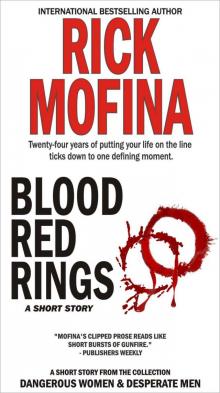 Blood Red Rings (Dangerous Women & Desperate Men)
Blood Red Rings (Dangerous Women & Desperate Men) As Long As We Both Shall Live (Dangerous Women & Desperate Men)
As Long As We Both Shall Live (Dangerous Women & Desperate Men)![[Tom Reed and Walt Sydowski 01.0] If Angels Fall Read online](http://i1.bookreadfree.com/i2/04/12/tom_reed_and_walt_sydowski_01_0_if_angels_fall_preview.jpg) [Tom Reed and Walt Sydowski 01.0] If Angels Fall
[Tom Reed and Walt Sydowski 01.0] If Angels Fall Cold Fear
Cold Fear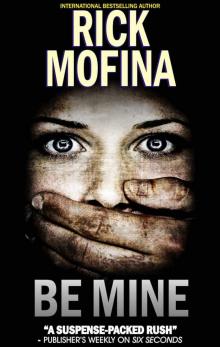 Be Mine
Be Mine Three Bullets To Queensland
Three Bullets To Queensland